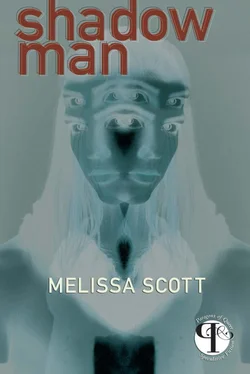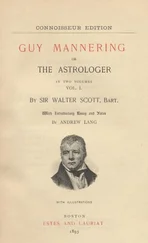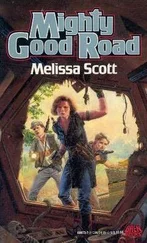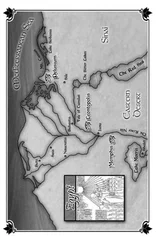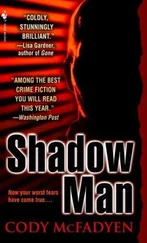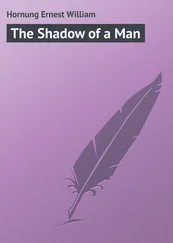Folhare blinked once, still smiling, and cocked her head to one side. “This is sudden, coy , what’s brought this on?”
“I don’t want to go by myself,” Warreven answered.
“So who turned you down?” Folhare’s smile turned wry.
“Is that fair?” Warreven demanded, and made himself sound more indignant because it was true.
“I suppose not. Are you—I can’t imagine this would be entirely smart, Raven.”
“I wish everyone would stop minding my business,” Warreven said.
“So someone did turn you down,” Folhare said, with mild satisfaction. “Clere?”
“Does it really matter?” Warreven forced a smile. She was right, of course: bringing her as his guest would be deliberate provocation, but in his present mood, it seemed the thing to do. “I would like your company, Folhare.”
There was a little silence, Folhare still with her head tilted to one side in question, and then she sighed, straightening. “I shouldn’t tell you this, but you might want to know there’s going to be a presance at the baanket .”
“Ah.” Presance was a new word, a Modernist word; it meant the sort of performances the ranas had always given, drums and dancers and singing, but the songs of a presance generally had a more focused sting in their lyrics. “How—?” Warreven began, and then shook his head. “You made the dance-cloth.”
“I painted the banner, actually.”
“Well, then.” Warreven spread his hands, nearly knocking over the now-empty cup. “Don’t you want to see what happens?”
Folhare grinned. “I do, but I don’t want to cause you trouble. Or me, for that matter.”
“It’s over for both of us,” Warreven said. “No one would expect any of the makers to show up—except the dancers, that is—and I could use female company.”
“As if I count.”
“The law says,” Warreven began, and Folhare made a sound of contempt, as though she would have spat.
“The law, as you’ve quoted me more than once, is an ass. Oh, hells, yes, I’ll come. When do you want me?”
“We hired a coupelet to take us to the market,” Warreven said. “Malemayn, Haliday, and anybody they invite, and me. I’ll pick you up at eighteen-thirty, if that’s all right. We should miss the worst of the crowds.”
“And still get the best of the baanket ,” Folhare said. “I’ll be ready.”
“Thanks, Folhare,” Warreven said. “I’ll be glad of your company.”
“Say that again when this is over,” Folhare said, and broke the connection.
Warreven replaced the monophone’s handset, wondering if he was making a mistake. The other Important Men and Women of Stiller would be there, and he would be compared to them, not just by the Stillers in Bonemarche, but by the rest of the clan in the mesnie s north of the city. But then, they would probably be delighted to see him with any woman, even one as unlikely as Folhare Stane, he told himself, and went into the bedroom to change for the baanket .
He shared the coupelet with Haliday, Malemayn, and a dark, lively woman who was introduced as Lyliwane. She was well named: even with her hair piled into festival braids, she was still a hand’s width shorter than Malemayn’s shoulder. Warreven, who was no better than average height, felt suddenly tall and gangling next to her. Both she and Malemayn were elegant in holiday finery; Haliday wore off-world clothes as usual, 3er only concession to the occasion a bright embroidered sbaal wrapped man-style around 3er hair. The driver took them wide around the Harbor Market, and swung down the main street of Startown—uncrowded, for once; most of the off-worlders were either home, or already at the Glassmarket—heading for the row of former warehouses that had been converted to housing along the southern edge of the district.
Folhare was waiting in the opening of what had been the loading bay, tall and elegant in a tight bodice and a tiered skirt, the traditional clothes and the profusion of cheap dower jewels—ear-rings, necklaces, a dozen glass bracelets—incongruous coupled with her close-cut hair. An old woman sat at the other side of the open bay, dividing her attention between the street and the cone of silk and the netting hook in her lap. Children were playing somewhere back in the shadows, their voices clear and distinct as Malemayn opened the coupelet’s door, but the sunlit forebay was empty except for the old woman. Folhare gathered her skirts around her and stepped carefully down the stairs to the street. Warreven, leaning past Haliday to greet her, saw the old woman frowning, her hands for once still on the hook.
“Who’s she?” he asked.
Folhare lifted her skirts to mid-thigh, freeing her legs to climb into the coupelet’s crowded compartment. “A sort-of cousin, or maybe an aunt. Her name’s Sawil, she wants to be mother to us all.”
“And she doesn’t approve of Stiller?” Warreven asked, and edged over to make room for her.
“She doesn’t approve of me,” Folhare answered. “Celebrating Stiller’s baanket is about the least of my sins.”
There was no need for introductions: Bonemarche’s active Modernists were still a small enough group that most people who were involved in politics had met all the others at one point or another. Warreven leaned back against the padded seat as the driver kicked the coupelet into motion, and Malemayn touched his shoulder.
“Want some?” He held out a bright green paper cone filled with a mix of poppinberries and creeping stars and the hot red seeds of the vinegar tree.
“Thanks,” Warreven said, and took a handful of the roasted berries, crunching them one by one to release the drop of painfully sweet dew concentrated at the center. Folhare waved away the cone, but Lyliwane took a larger helping, began eating them in order, berries first, then the seeds, and finally the creeping stars.
“As if we’re not going to get enough at the baanket ,” Haliday said, but 3e, too, took a few of the berries.
As they got closer to the Glassmarket, the streets became more crowded, and normal traffic, shays and three-ups and draisines, vanished, leaving only jiggs and the occasional coupelet to compete with the pedestrians. Nearly everyone was heading in toward the marketplace; Warreven saw a single shay, marked with the glyph of one of the lesser pharmaceuticals, stranded at a corner, trapped by the pressure of bodies and the steady movement. The driver, an indigene, leaned forward to rest both arms on the steering bar, obviously prepared to wait it out. His passenger’s face was in shadow, almost invisible, but a hand tapped impatiently against the shay’s body. Their own coupelet slowed, gears grating, and Malemayn winced.
“Maybe we should walk from here.”
“Whatever.” Warreven looked at the others, and Haliday shrugged. Lyliwane extended one tiny foot to reveal high-soled summer clogs.
“Believe it or not, I can walk in these.”
“Let’s,” Malemayn said, and hit the intercom button without waiting for an answer. “You can let us out here, the traffic’s getting too bad. After that—enjoy the baanket , we won’t be needing you to get home.”
“Thank you, mir. At your pleasure, miri.” The driver’s voice crackled back through the tinny intercom, and a moment later, the coupelet ground to a halt. He didn’t bother pulling to the side of the road; there were no other vehicles to worry about, and the crowd flowed past it like water around a rock. Malemayn popped the side door, levering himself out into the crowd, and turned with forgetful courtesy to offer his hand to Haliday. Ȝe ignored him, but both Folhare and Lyliwane accepted the help in struggling out of the low compartment. Warreven followed them, slamming the door behind him. The taste of the creeping stars was strong on his tongue, bitter and sweet, like burned sugars. The afterimage was there, too, a faint haze of color around the stores’ lights, and he watched his feet for a minute, until he was sure he’d adjusted to its effects.
Читать дальше
